#Josh Radnor
Text

#tv series#tv shows#polls#how i met your mother#josh radnor#jason segel#alyson hannigan#2000s series#us american series#have you seen this series poll
189 notes
·
View notes
Text
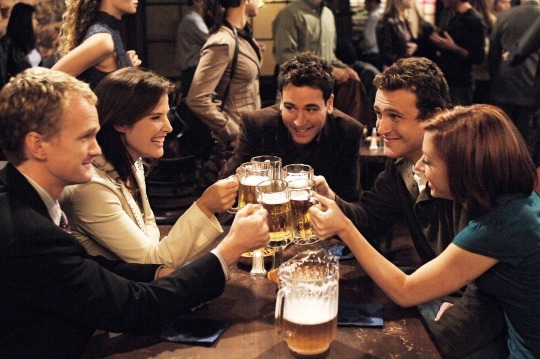
#how i met your mother#himym#tv series#ted mosby#robin sherbatsky#barney stinson#lily aldrin#marshall eriksen#colbie smulders#neil patrick harris#josh radnor#alyson hannigan#jason segel
921 notes
·
View notes
Text
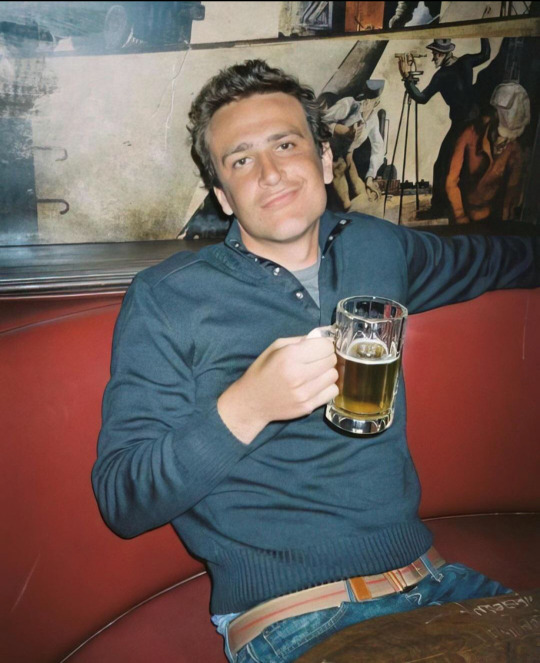


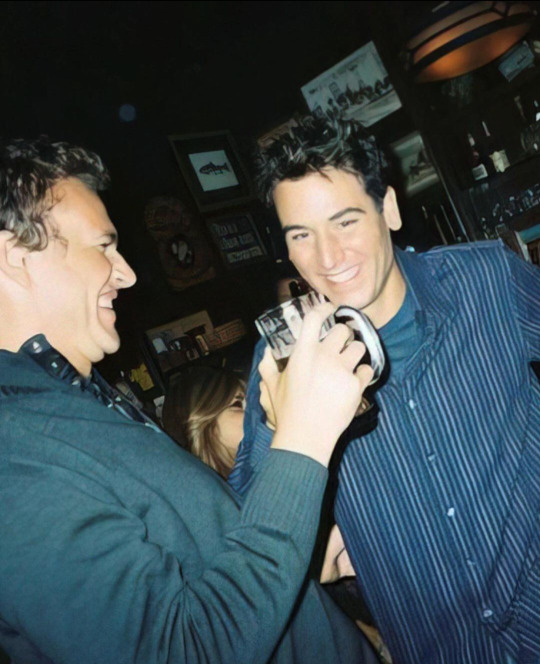



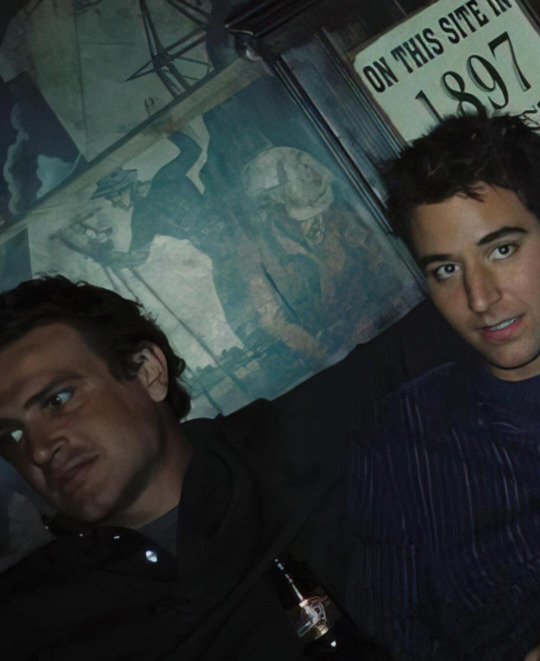
#how i met your mother#barney stinson#robin scherbatsky#ted mosby#marshall eriksen#lily aldrin#neil patrick harris#cobie smulders#josh radnor#jason segel#alyson hannigan
280 notes
·
View notes
Text
#how I met your mother#HIMYM#Ted Mosby#Tracy McConnell#Josh Radnor#Cristin Milioti#I’m gonna be (500 miles)
24 notes
·
View notes
Text
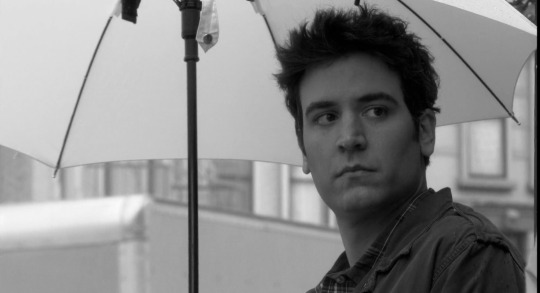

"The great moments of your life won't necessarily be the things you do.
They'll also be the things that happen to you.
I'm not saying you can't take action to affect the outcome of your life.
You have to take action, and you will.
But never forget that, on any day.
you could step out the front door and your whole life can change forever.
You see,
the universe has a plan, kids,
and that plan is always in motion.
A butterfly flaps its wings... and it starts to rain.
It's a scary thought. But it's also kind of wonderful.
All these little parts of the machine
constantly working,
making sure that you end up exactly where you're supposed to be, exactly when you're supposed to be there.
The right place...
at the right time."
- Ted Mosby
Credits: How I Met Your Mother
Season 4;Ep 22
'Right Place Right Time'
76 notes
·
View notes
Photo
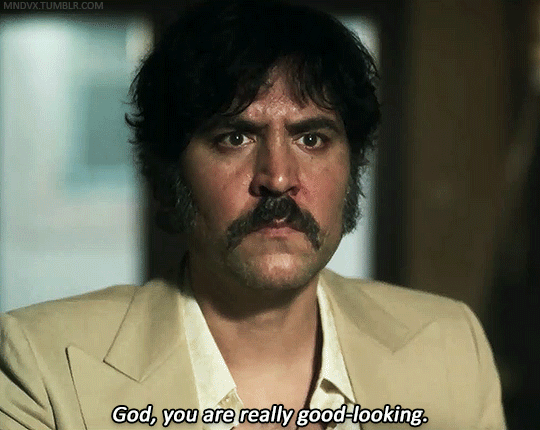
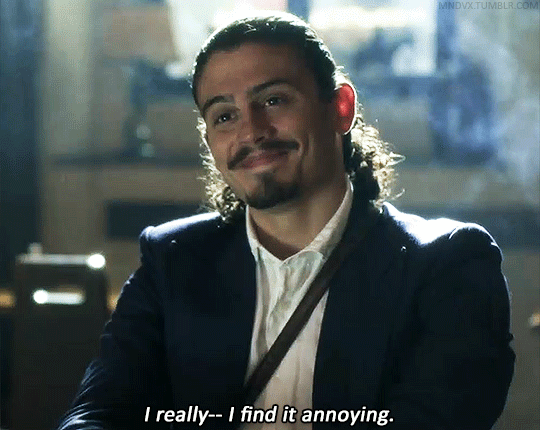
HUNTERS – The Fare (S02E04)
››› Josh Radnor as Lonny Flash
››› Tommy Martinez as Georges St. Georges
#hunters#josh radnor#lonny flash#tommy martinez#georges st georges#huntersedit#tvedit#hunters spoilers
232 notes
·
View notes
Photo

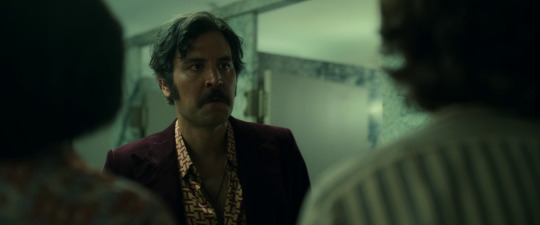




HUNTERS S2 · E2: Buenos Aires
—a story told in such few frames
#hunters#hunterstv#hunters amazon prime#logan lerman#josh radnor#jerrika hinton#lonny flash#jonah heidelbaum#millie morris#this is even funnier as just screencaps#hunters s2
186 notes
·
View notes
Photo
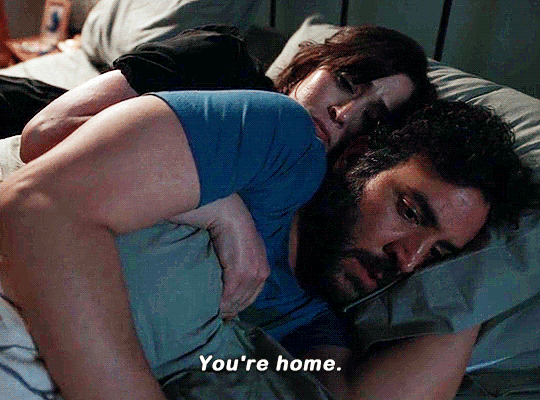

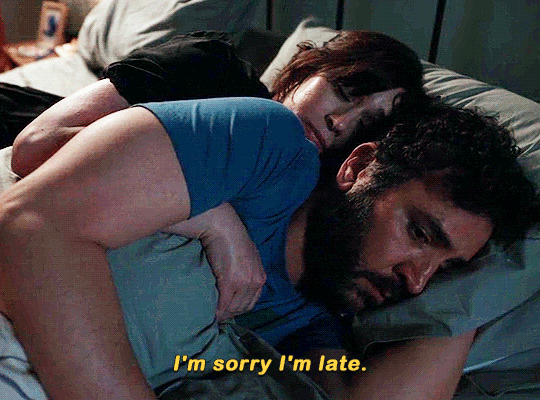
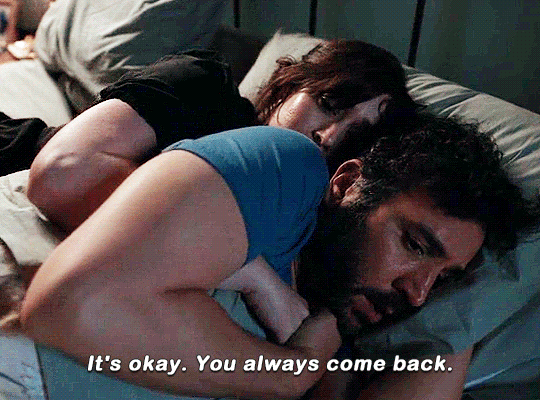
Fleishman Is in Trouble | 1.08 “The Liver”
153 notes
·
View notes
Text
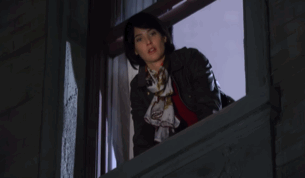
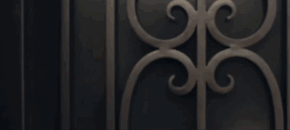


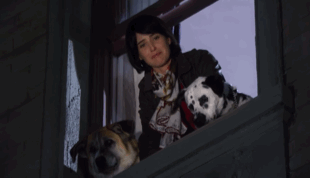
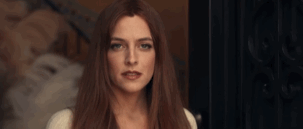
🤝
#tv series#ted mosby#robin scherbatsky#josh radnor#cobie smulders#himym#daisy jones and the six#prime video#daisy jones#billy dunne#sam claflin#riley keough
57 notes
·
View notes
Text
Thoughts on Hunters s1
I heard that season 2 of Hunters is about to premiere (Jan 13, if you’re wondering, on Amazon Prime) and I wanted to share with you some of my thoughts about s1. Before I kick off, I am assuming that if you’re reading this, you have watched it. In case you haven’t, this is your official spoilers warning!

A Personal Perspective
Okay, so to explain how I went in, take into account that in addition to my grandparents all being Holocaust survivors, I work in a Holocaust museum. Imagine me hearing that there’s going to be a show following a group of Jewish Nazi hunters. Obviously, I signed on to watch right away. But I also don’t like spoiling myself, so after hearing that initial information, I was actively avoiding any further spoilers. At the same time, thanks to my job, I’m aware that there really were Jewish Nazi hunters operating in Europe at the end of WWII. Some in groups, some individually, they’re collectively referred to as "Ha’Nokmim" (that’s Hebrew for The Avengers). Which means, I basically went in expecting the show to be about, you know... the real life Jewish Nazi hunters. I even had a wager with myself on which group specifically the show might have chosen to follow. Would we see the real people involved or a fictionalized version of them? I had no idea, but I also didn’t think I had any reason to doubt that this would be the context of the show.
So imagine me (poor, sweet summer child that I was 😂) starting to watch and almost immediately realizing, oh. No, I was very wrong. I didn’t even need the title card telling me the time and place. There I am, realizing that what I’m looking at isn’t Europe, the setting’s in the US, it isn’t the 1940′s, the clothes alone indicate it’s the 1970′s, the colors are also too bright for what I originally expected, while the context seems to be work colleagues having a barbecue together. Couldn’t be further away from Nazi hunting. My brain is racing, trying to catch up. Okay, I reason, there must be a Nazi who is present at this barbecue. Maybe he’s someone who got away from the protagonists in the past, and his re-surfacing will bring the group from the 1940′s back together, allowing us to learn their story through flashbacks?

Very quickly, it becomes clear a Nazi criminal is indeed present (and that he’s a very powerful man, with personal connections to the president) when one young Jewish woman identifies him. I have to applaud the performance, it was chilling to see the character shifting from a regular party attendant to a woman confronted with a perpetrator of indescribable horrors. However, I didn’t have a lot of time to admire it. The rest of the scene felt like a punch to the gut. Once identified, this Nazi man pulls out a gun and starts shooting everyone present, including the young woman’s Jewish husband, and she’s about to be next.
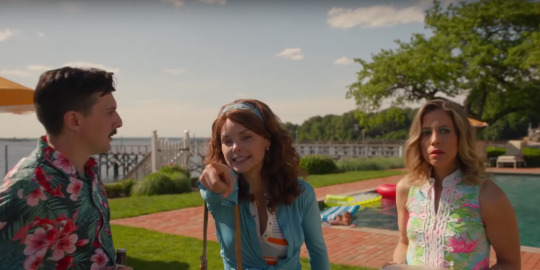
When I choose to watch anything related to the Holocaust, I know that I’ll see at one point or another a portrayal of some of the horrors inflicted on my family and my people. I know that. But I have to admit, I wasn’t prepared to see Jewish characters being shot so nonchalantly by a Nazi murderer after the end of the war. The scene also stretches on, it’s clear what’s about to happen, the Nazi and young survivor’s dialogue only holds off the inevitable outcome of this encounter, given that she’s not even armed and he’s powerful and connected enough to commit a massacre without so much as a blink. That makes it feel even more torturous, to have to sit there and watch this unfold, feeling the helplessness of this young Jewish survivor. Helen.
During their dialogue, the Nazi murdered tells her in German, “We are here.” This is the moment when it finally sinks in that this would not be about any of the real Jewish Nazi hunters who avenged the murder of Jews at the end of WWII, this would be a fictional tale about a group of Nazis who had embedded themselves into US society in the 1970′s, and the show would follow an equally fictional team hunting them.
There’s a specific sentence that this man also utters in this scene which was particularly painful to me. When Helen tells him defiantly that Jews have survived before and they will again, he replies, “You didn’t survive. You marinated.” That one just hit too close to home. The truth is, whether Jews as a collective will manage to recuperate from the Holocaust or was that event the beginning of our demise, that’s still an open question. We don’t know. No one knows whether Jews will still be here in two or three hundred years. Not just because of the Holocaust. We have suffered 2000 years of discrimination, persecution, brutalization, repeated expulsions, pogroms, massacres, and that’s all before the Holocaust, this attempt at the final extermination of the Jewish people. We have survived. Every single Jewish person’s existence is almost like a miracle, here against all the historical odds. But is the effect of what was done to us reversible, will the Jewish people have a future as well, not just a present?...

You can probably sense that I got to the end of this scene like I’d been put through the ringer. Maybe if I had the right expectations for the show, this wouldn’t have been quite as painful to watch. That’s on me, but it did affect my viewing experience. So I stopped and asked myself, do I actually continue? My savta (my grandmother) taught me that if I had started something, I should try my best to finish it, which means I don’t easily start debating whether to stop something half way. If I got to that point, and so early on, you can hopefully understand just how distressed I was by the show’s first scene. I could see why Hunters opened this way. It makes the stakes high and real, and it also makes the heinousness of the Nazis indisputable and relevant, not easily overlooked as a ‘relic of the past.’ That doesn’t mean understanding made it easier to watch, and I fully realized that if I go on, I will probably be exposing myself to further distressing scenes. I sincerely wasn’t sure I could make it to the end of the ep, let alone the season. Then again, there were many times I found myself very grateful for my savta’s voice in my head, urging me on. I couldn’t ignore that, so I figured that I would at least watch a few more scenes before I decide.
As I continued, the show introduced me to its main protagonist, Jonah, who did something that surprised me. He said one word I was completely unprepared for. Savta. If the first scene punched me in the gut with its brutality, this word, just this one simple word, grabbed me even tighter. Jonah’s connection to his grandmother represented with the same word I had for mine. I had never heard this word spoken on American television. Hearing it wasn’t a representation of who I am as a Jew, it was just a fracture of that, and yet it was incredibly powerful even so. I’ve mentioned before why I think most Jewish representation out there is not actually good Jewish rep, which means even this tiny bit of it felt unbelievably important. I knew in that moment that I would watch the whole show, beginning to end. If this is what they could do with one word, I had to see what else they had in store.
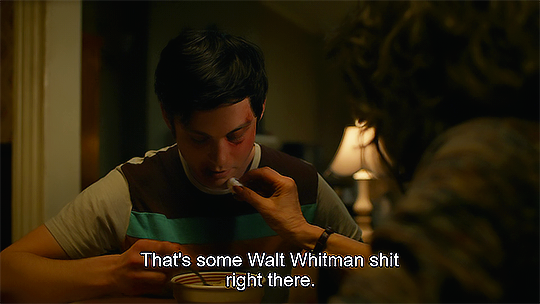
I ended up feeling all sorts of things, I’ll talk about them in a sec. But first I had to mention my personal experience, because I think coordinating people’s expectations before they watch this show can go a long way to ensure a better viewing experience. So if you ever recommend this show to anyone (and I hope you do), please take this into account!
A couple of issues
Maybe the biggest thing to make me feel a little uncomfortable was a scene we also get to in ep 101, the human chess one. It’s so over the top grotesque that my gut feeling is a lot of people probably watched it and wondered whether that was real. A quick online search would tell them it wasn’t. Which seemingly isn’t an issue in itself. Story tellers are allowed to embellish things for dramatic effect. But the danger is in how finding out this scene is made up might affect the way they see other horrors portrayed in Holocaust movies and shows. Since I do believe most of the time people don’t bother checking, would viewers of this show making a special effort in this case and then discovering the scene isn’t factual, will they then generalize from it to others showing the brutality of the Nazis? It doesn’t even have even have to be a conscious generalization, but its effect can be very real. Working in the field of Holocaust education, I’m too aware of how partial most people’s understanding of the Holocaust is. This specific scene might unintentionally further undermine it.
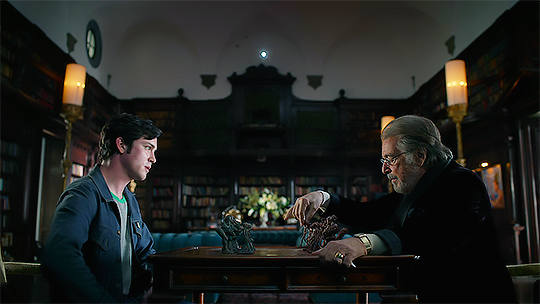
Of course, we also have the issue of Holocaust denial. TBH, I'm sure most Holocaust deniers know on some level that it did happen. There’s just too much evidence. Consider how we have less evidence for the French revolution than for the Holocaust, yet I’ve never heard anyone doubting whether the former had taken place. Holocaust denial isn’t about lack of proof, it’s about lack of compassion towards Jews and a desire to see it repeated, this time to completion. When I was about 7 or 8 years old, I heard a Holocaust denier in Germany saying exactly that (“There were no gas chambers, they didn’t murder Jews in them, and I wish they did!”) so I have no doubt that such people can’t be persuaded to recognize the truth until they choose to change their attitude towards Jews. Yet in recruiting malleable minds to their extremist POV, I am concerned of anything that might be used as ammunition by them. I personally simply don’t wanna give them so much as an inch that they might use to gain even more ground.
And there’s another issue with the human chess scene: it’s so inhumanely cruel that when people discover it’s made up, they might conclude (incorrectly) that the show had to invent this because there were no such brutalities during the Holocaust. I can’t stress enough how untrue this is. Sometimes I wish I could un-know what I do know about how Jews were murdered in the Holocaust. It’s not easy living in a world in which one knows such unrestrained hate-filled sadism is possible. Rest assured, most people haven’t heard about the worst of what the Nazis were capable of. So the idea that maybe people might get the wrong impression, that the Nazis weren’t as brutal as this scene... No. Just, no.
Again, I do get what the show was going for. The biggest metaphor it plays around with is that the fight between the Jews and the Nazis is a chess game. The show might refer to Jewish (and a few non-Jewish, to be accurate) Nazi hunters, but at the chess board, both sides are, in a sense, hunters and hunted. The scene with the human chess game gives the metaphor its fullest, most horrific incarnation, and it also allows for the brilliant visual cutting between the characters of the Nazi Richter, his Jewish prisoner Markus Roth, Jonah and the man he knows as Meyer Offerman. Not only does that drive home the question of who pursues and who is pursued, it also is another bit of genius foreshadowing that the man who presents himself to Jonah as a Jewish Nazi hunter is actually one of the Nazis the team is hunting (along with hints like the scene from Seconds which the fake Offerman watches, a film about a man assuming another one’s identity with the help of plastic surgery, plus Offerman saying to Jonah at almost the end of the ep “Only the dead know the end of war,” which we first hear uttered in German by the barbecuing Nazi to Helen in the opening scene of the show).

It’s absolutely fucking genius in terms of the artistic choices. And I’m not one to advocate for limiting artistic expression, even when it comes to historical events. But I do think that when we’re dealing with such sensitive material with real life implications for the perception of the Holocaust (and as a consequence, how Jews are perceived and treated here and now), we have to tread very carefully. We have to make sure we understand the consequences before we make these choices, and if we still decide to go ahead and include such historical alterations in our fictional work, we have to have a conversation about it, make sure people understand what the actual reality of the Holocaust was like, and that they’re not only left with a false impression that the Nazis were only that despicably grotesque in their fictional versions.
In this sense, I also have an issue with the reveal at the end of s1, that Hitler is still alive and hiding in South America. Don’t get me wrong, there really was a network set up to smuggle Nazi criminals to South America at the end of the war, and I wouldn’t be shocked by the willingness of people to help Hitler evade justice. But we do know he committed suicide at the end of WWII. In fact, in a sense, that’s a moment of justice on its own, when this man has to face the fact that he has failed, that he did not manage to exterminate the Jews (who he sees as the real power behind the allies) and that he has brought his country to ruin, leaving him no choice but to take his own life. Did he show any signs of remorse? No. In his last will and testament, he still commands the German people to carry on and finish what he started, the extermination of the Jews. But the fact that he had to admit he couldn’t do it, the fact that his actions were disastrous enough that he had to put a gun to his own head, that speaks for itself even if Hitler never explicitly expressed his realizations. But more than that, I’m always weary of conspiracy theories that neo-Nazis are in favor of. Again, much like with Holocaust denial, I just don’t wanna encourage anything that might empower them.
Second thing I was a bit uncomfortable with was the ongoing moral question regarding the Jews who had decided to hunt down and enact vengeance on Nazi murderers at the end of the war (contrasting them with the likes of Simon Wiesenthal, who believed that justice should be served through the legal system). I actually very much like the conclusion the this debate is brought to in ep 110 (basically, where it leaves things off at the end of s1, we’ll see what or if s2 changes this), but there’s something about even having this debate that makes me feel uneasy, because when there really were Jews who made that choice, it means they’re up for judgment. And to me, no matter what Jews did during or after the Holocaust, there is no moral right to judge them. They were put in extreme, impossible, utterly inhumane situations, that no human being should ever be put in. Some of the real Ha’Nokmim were kids and teenagers during the years of the Holocaust. How can anyone sit in judgment of a person who had been subjected to such immeasurable cruelty, during their formative years no less, someone who had the people meant to educate them on morals murdered, sometimes in front of their very eyes, and who had not even finished developing their cognitive functions (their prefrontal cortex, the part of the brain responsible for our moral choices, which only finishes developing at 19)? These people also often saw the legal system either failing to stop the murderers from committing their crimes, or it even collaborated with those (we can talk, for example, about the judges who chose to side with Hitler in Germany even before the Nazis’ rise to power). How can we dismiss it if they felt this system would not give them any justice at the end of the war? In fact, it didn’t. An upcoming documentary called Getting Away with Murder(s) will premiere on Jan 27, and it will look at the lack of justice served by legal means at the end of the Holocaust. The film maker points out that out of countless perpetrators and collaborators responsible for the murder of millions of human beings, less than 600 were given a serious sentence at the end of the war.
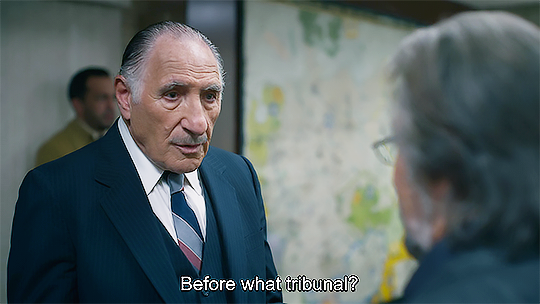
Not to mention, I do not believe that there is ever a moral equivalency between someone who chooses to be a part of the murder of millions of innocent people, and a person who takes the life not of an innocent, random human being, but rather of such a murderer. Is it the right choice to make even if an avenger is nothing like a Nazi murderer? That’s a different question, and like I said, that’s not one I have any right to answer, but in terms of the moral philosophy regarding the question of equivalence, I just don’t believe that these two could ever be considered the same without doing the avengers a horrible injustice. In fact, ignoring this lack of equivalence means Simon Wiesenthal’s option of going through the legal system loses its footing, too. Wiesenthal was a part of hunting down Adolf Eichmann and making sure that the man responsible for the deportation of millions of Jews to extermination, the man who had expressed to a Dutch journalist before he was caught that he regrets nothing, would have to defend himself in a court of law. Eichmann was provided with legal defense to make sure his trial was as fair as they come, and his line of defense was destroyed based on documents bearing his own signature. He decided his own fate with the immoral, murderous choices he made during the war. Yet, when the sentence was given that he was about to be executed, there was a group of intellectuals who composed a letter together, pleading for him to be pardoned “lest we become like him.” I hope you don’t need me to explain why this pseudo-moral position is actually a distortion of morals. It means there is apparently no crime perpetrated against the Jewish people horrendous or extreme enough that Jews would get to exact any kind of justice against the people who had wronged them. How is that moral, to make the murder of Jews essentially un-punishable?
An incredible feat
The most basic thing I have to mention is just how well made this show is. It’s well written, well acted, well directed, the music, the cinematography, everything is top notch, and the show even gets to flex by letting us witness how easily it can play around with genres. We even get a nod to musicals. In a show dedicated to Nazi hunters! Speaking of acting, I’m sure most accolades went to Al Pacino (deservedly so, he gives an amazing performance), but I personally have to applaud Logan Lerman. He just knocks it out of the park time and time again in a really challenging role that showcases the main journey in s1. Also, the moment that got to me the most emotionally, the one I felt in my very bones, was in 101, when Jonah falls apart over a bowl of soup, crying because he wants his savta. If you’ve ever known loss, if you’ve ever known grief, then you know how real that moment is.
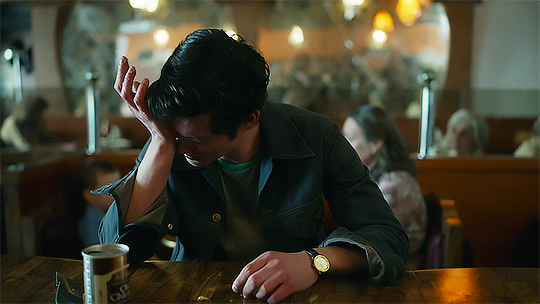
Another thing is the use of humor. You may wonder about this one. After all, isn’t the Holocaust a really serious subject? Yeah, of course it is. But a part of how Jews survived it was by turning to humor. I can tell you jokes that survivors wrote down in ghettos and in camps that, painful as the subject matter is, still made me laugh when I read them, I can point you to a book titled “Without Humor, We Would Have Committed Suicide” that discusses how humor was a defense mechanism. It didn’t take away from the seriousness of the horrors people were experiencing, it bettered their ability to deal with those atrocities. So I’m glad a reflection of that is captured on this show.
I also wanna commend the characters of contemporary antisemites in the 1977, the characters of Dennis in 101 and Travis along s1. I mentioned in my post about the issues with Jewish representation that there’s a problem with the representation of antisemitism and how it’s mainly shown in the context of the Nazis and them alone, as if Jew hatred began with the Nazis and ended with them. It’s not true, and especially as antisemitism has been on the rise in every western country for at least a decade now, we need to talk about contemporary antisemitism more. I also suspect that a part of why Jews are sometimes overlooked as an oppressed minority is people not recognizing that the hate and discrimination against the Jewish people is still alive and kicking. This is before we even get to how many different types of antisemitism there are! But I bet most people would fail to name even three of them. Because we don’t actually educate on antisemitism. We talk about the Holocaust and leave it there, as if nothing exists between “Jews are fine and treated properly” and “Jews are being massacred.” So yeah, showing the antisemitic treatment of Jonah at the hands of Dennis, or Travis’ antisemitic attitude and how he relishes killing Jews in the post 1945, it really matters. It still not even close to covering all forms of antisemitism we see today, but it’s a step in the right direction that I hope others will follow.

Another really important aspect is that for the most part, the show is actually pretty accurate in a lot of ways. We either see details that are real, or are fictional stories that are very close to and accurately reflect events that really did happen. The overall uncensored and unashamed cruelty of the Nazis, born out of their antisemitic hatred, is well depicted. The fact that the show brings to light the efforts made to help Nazi criminals at the end of the war, whether we’re talking about the network to smuggle Nazi murderers to South America, or whether it’s Operation Paperclip, set up to allow Nazi criminals into the US (something that’s probably even harder for a US show to bring up), these are parts of the reality of the Holocaust that aren’t well known enough, and I’m so glad the show delves into them.
I mentioned that I love the way the show concludes the debate on whether it is the right thing to bring Nazis to justice through the legal system or through an act of personal revenge. The season finale, ep 110, gives it away even with its title, “Eilu v’Eilu.” It’s from a Hebrew saying, “Eilu v’eilu divrei elohim chaim” meaning “These and these are the living words of God.” It’s the Jewish concept that says two POVs can be completely contradictory (not just different, they can totally negate each other) and yet still both hold merit and be right. It’s a beautiful admission as to the complexity of the human experience, and it’s applied in such an amazing way here.
In 110, Jonah has to decide what to do when he discovers The Wolf, the Nazi who had abused Jonah’s grandparents and murdered his grandfather has been disguising himself as Meyer Offerman, the very man he had killed. Jonah can show compassion or he can take the life of this Nazi murderer. He chooses both. Jonah kills this man, but he first says the Kaddish for him. In fact, it’s not saying the Kaddish that allows Jonah to realize that the man claiming to be Meyer Offerman is not capable of Meyer’s intent to show even his abuser one last token of compassion. Meaning, it is this understanding that is key to the biggest emotional twist of s1. This is just a really wonderful, complex, human, and even Jewish conclusion to the debate that has been accompanying Hunters along this entire season, and it’s so well executed, too. It also gives room to whichever choice survivor made at the end of the war and does not morally judge them whatever path they took. I’m just absolutely in awe.
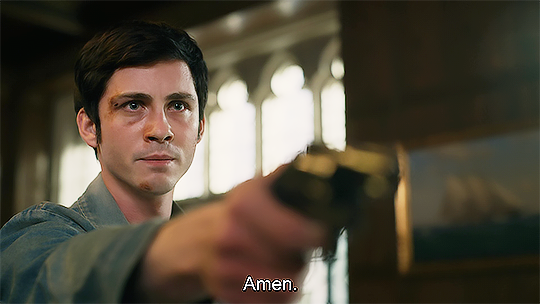
Lastly, and this is kind of reflected in something I had already mentioned in the previous paragraph, Hunters is simply so incredibly rich with Jewish culture, with Jewish wisdom, with Jewish tradition and tales, with Jewish humor and values, it is abound with a sense of Jewish identity and community, it is so unapologetically and beautifully Jewish, and I am absolutely in love with this aspect of the show. If I remember correctly, I heard at some point that the show creator, David Weil, was inspired by his own savta in making this show and it was dedicated to her. Well, the show radiates with love for the heritage he got from his grandmother. We even get to see Jewish events like a shiva’a and a Jewish wedding! How many Jewish characters have you seen over the years on your screen getting married or being buried? How many had their Jewish customs incorporated, even a tiny bit, into these significant moments in that character’s journey? Again, this is something I discussed in my post about the issues with Jewish representation. So trust me when I say, this show is an amazing tribute to Weil’s grandmother and to the Jewish people overall, and it’s one of the few cases of truly good Jewish representation that I have encountered on American television. Even for this point alone, I would recommend this show wholeheartedly, especially to Jewish viewers (while also preparing them for the show, pointing out the right context and the fact it is gory and painful in parts). I sincerely cannot stress enough how much this is the part that resonated for me the most and continues to make me think about this show months after I finished binge watching it. I hope and trust s2 would be just as good as s1, I’m looking forward to it, but I’m really grateful even for this one season of Hunters on its own and I am going to forever keep this show close to my heart.
If you’re looking for any of my posts about Jewish representation, you can find them at this link.
#jewish representation#jr#hunters#hunters amazon#hunters amazon prime#logan lerman#al pacino#jumblr#jewish characters#jewish rep#josh radnor#jennifer jason leigh#hunters season 2#hunters season 1#lena olin#judaism#jewish#jew#jews#frumblr
121 notes
·
View notes
Text
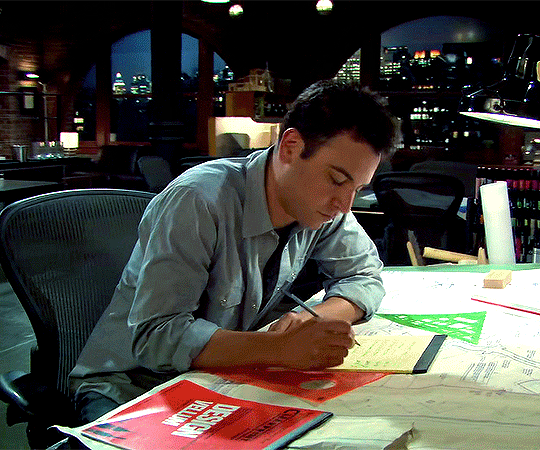


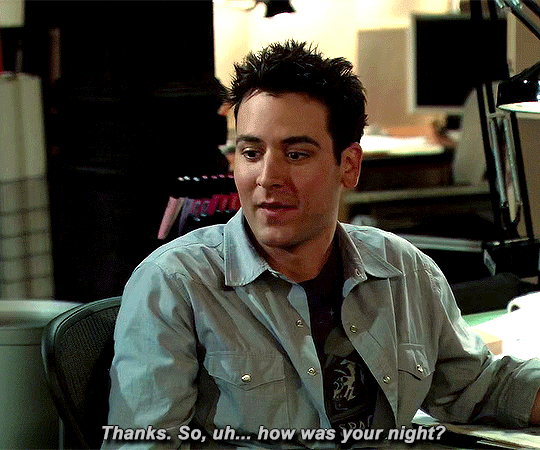

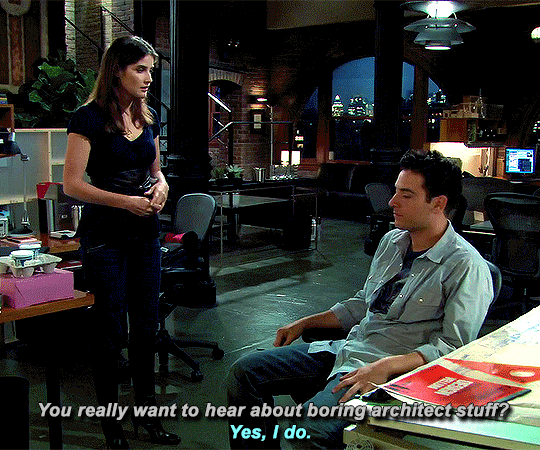
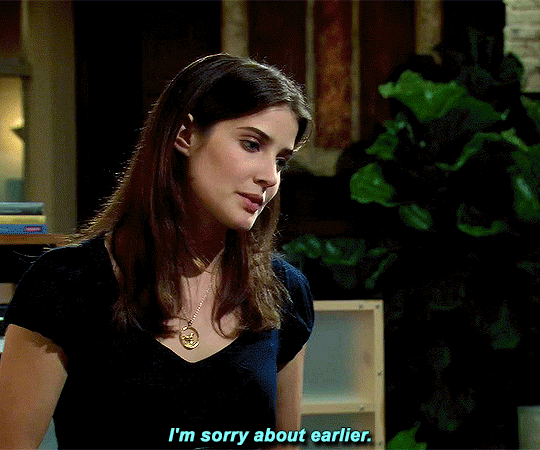
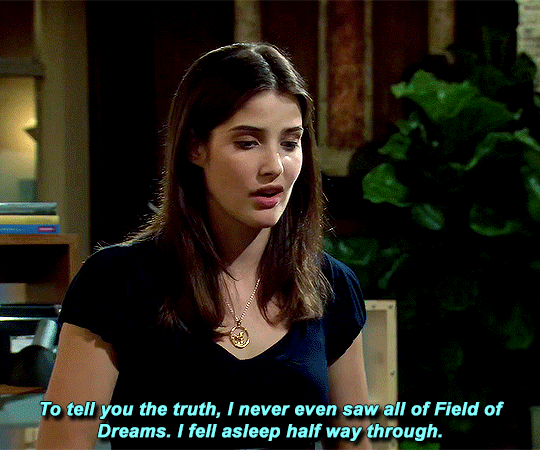

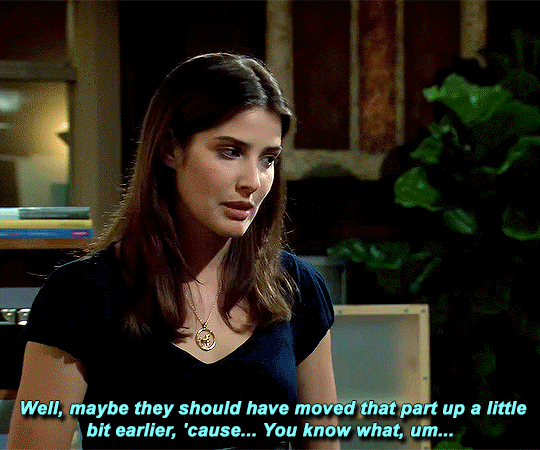
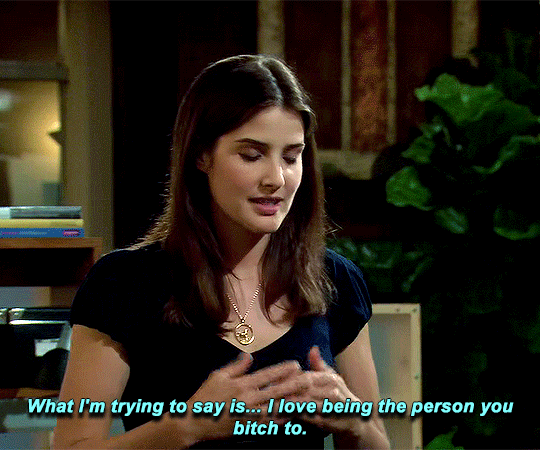

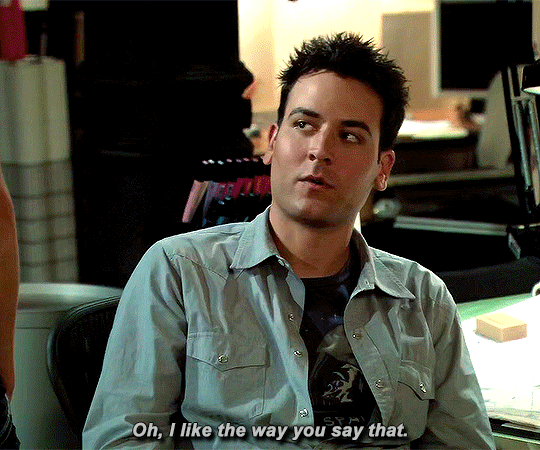
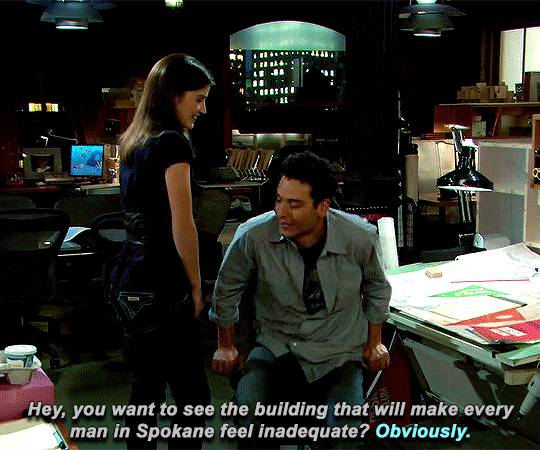


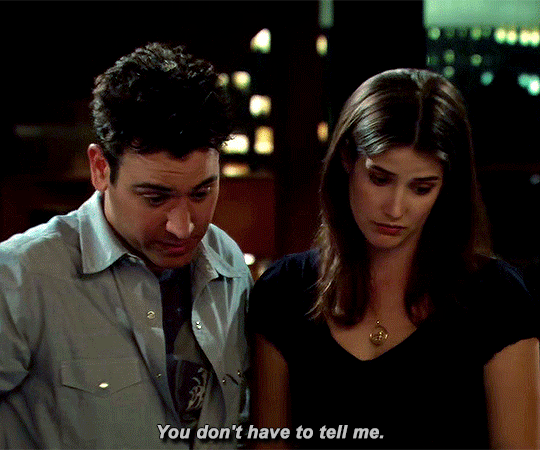
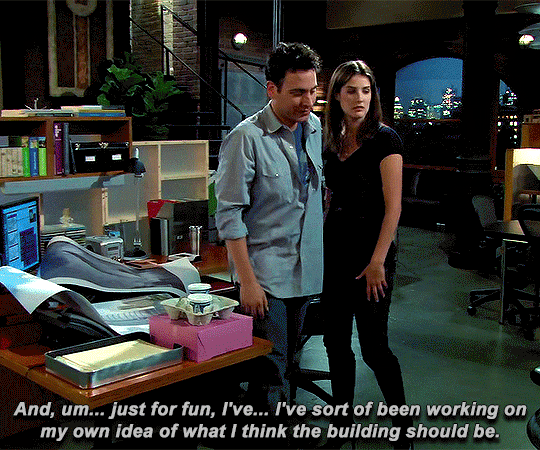


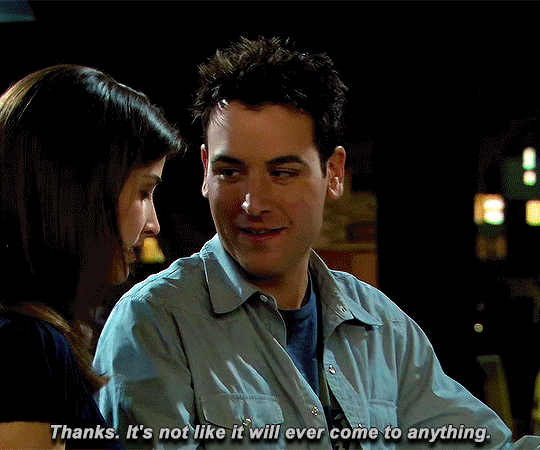

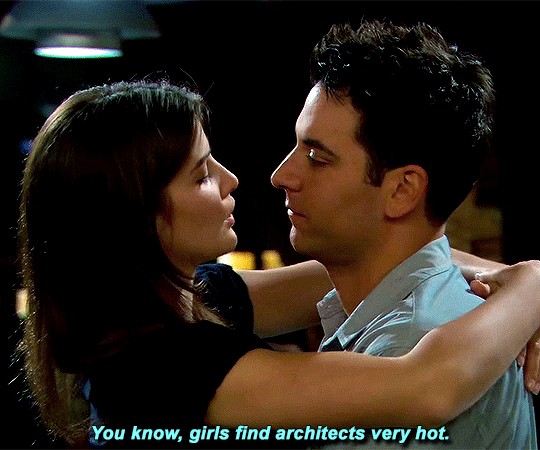
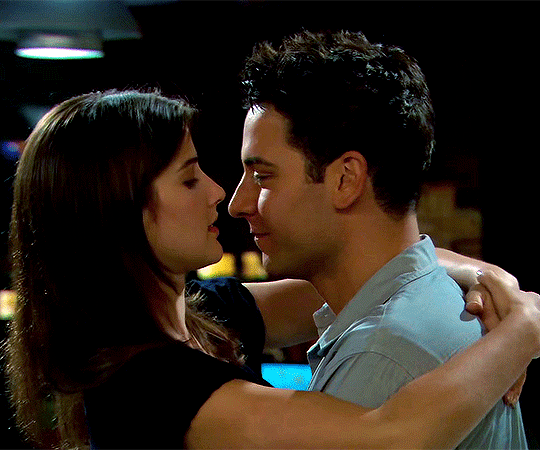
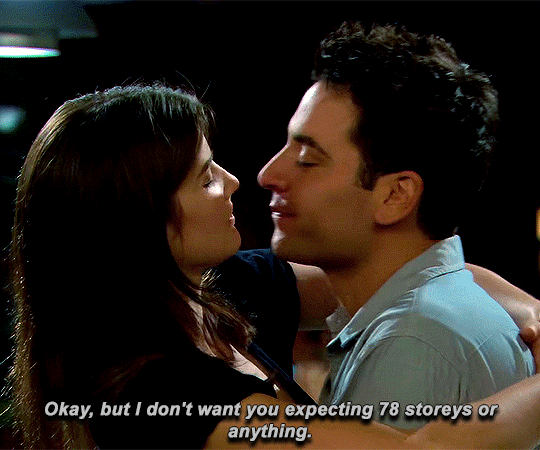
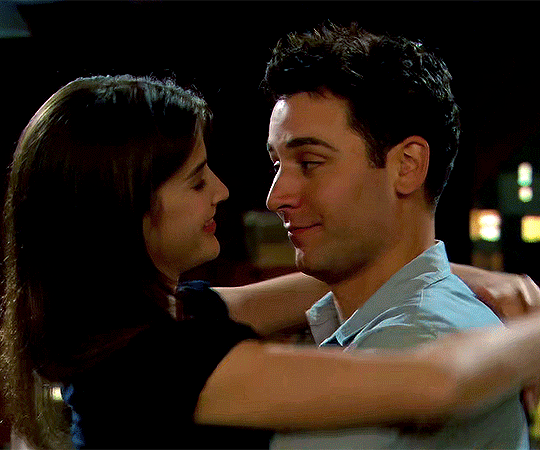
#himymedit#himymsource#usersitcom#filmtvdaily#tvfilmsource#tvfilmdaily#userthing#cinemapix#usertelevision#userbbelcher#otpsource#dailyflicks#mosbatsky#ted x robin#useroptional#smallscreensource#filmtvcentral#josh radnor#cobie smulders#2x04#my edits
27 notes
·
View notes
Text


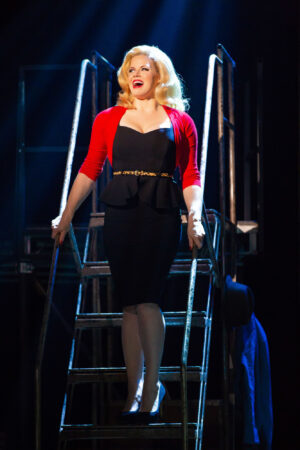
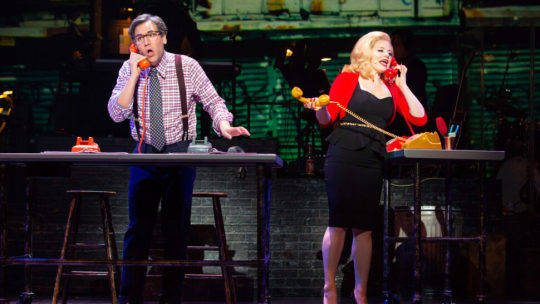
So, Megan Hilty and Josh Radnor (who played Wammawink and Durpleton in Centaurworld, respectively) apparently played Seymour and Audrey together in a production of Little Shop of Horrors at the Kennedy Center in 2018! How neat!
#his ass is NOT singing though lmao megan is carrying it#centaurworld#megan hilty#josh radnor#little shop of horrors#alan menken#howard ashman#video#post
7 notes
·
View notes
Text
Lonny: you know, when you said you were magic in bed, this isn’t what I thought you meant
Georges: is THIS your card?
Lonny: holy shit
#hunters#hunters amazon#lonny flash#georges st georges#josh radnor#tommy martinez#.m#really truly thought we were hurtling towards something homosexual here. david weil answer for your crimes
43 notes
·
View notes
Text
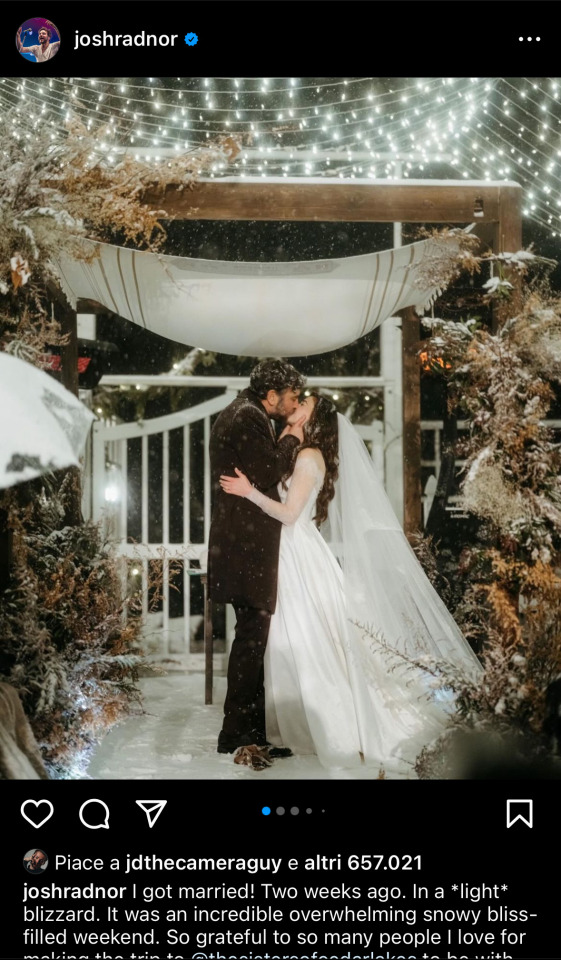
Josh Randor got married! 🥹
12 notes
·
View notes
Photo




HUNTERS – The Trial of Adolf Hitler (S02E08)
137 notes
·
View notes
Text


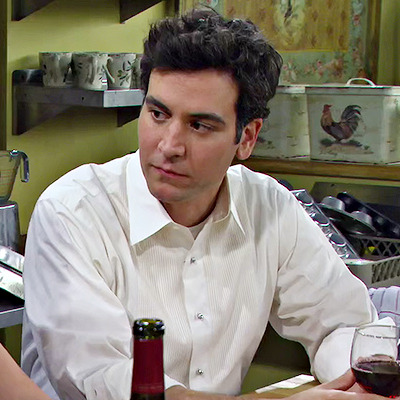
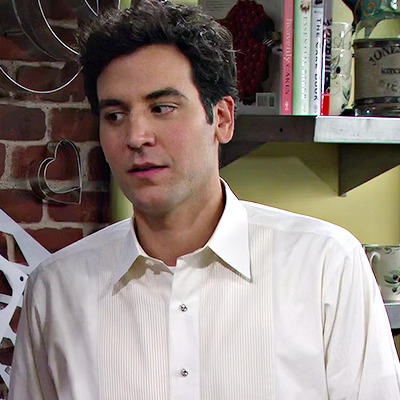

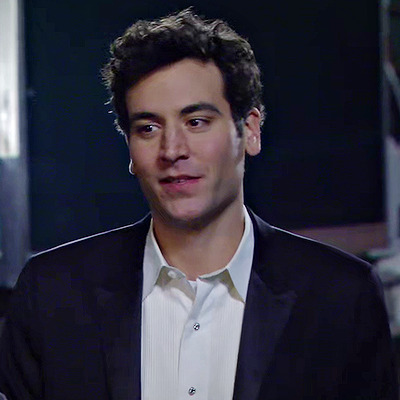
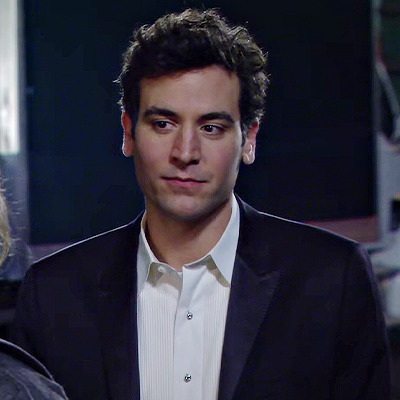
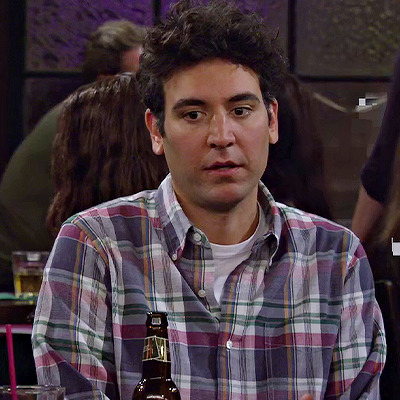
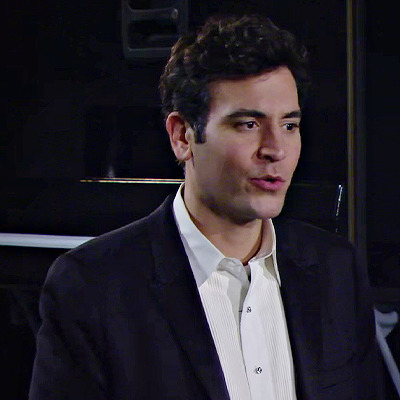
Ted Mosby - How I Met Your Mother, S07E03
#ted mosby#ted mosby icons#how i met your mother#how i met your mother icons#icons#josh radnor#josh radnor icons#himym#himym icons#ted mosby icon#himym icon#how i met your mother icon#icons ted mosby#icons how i met your mother#icons himym#icons josh radnor#random icons#twitter icons#random twitter icons#tv shows icons#himym edits#tv show#tv show icons#sitcom#sitcom icons#icon ted mosby
7 notes
·
View notes